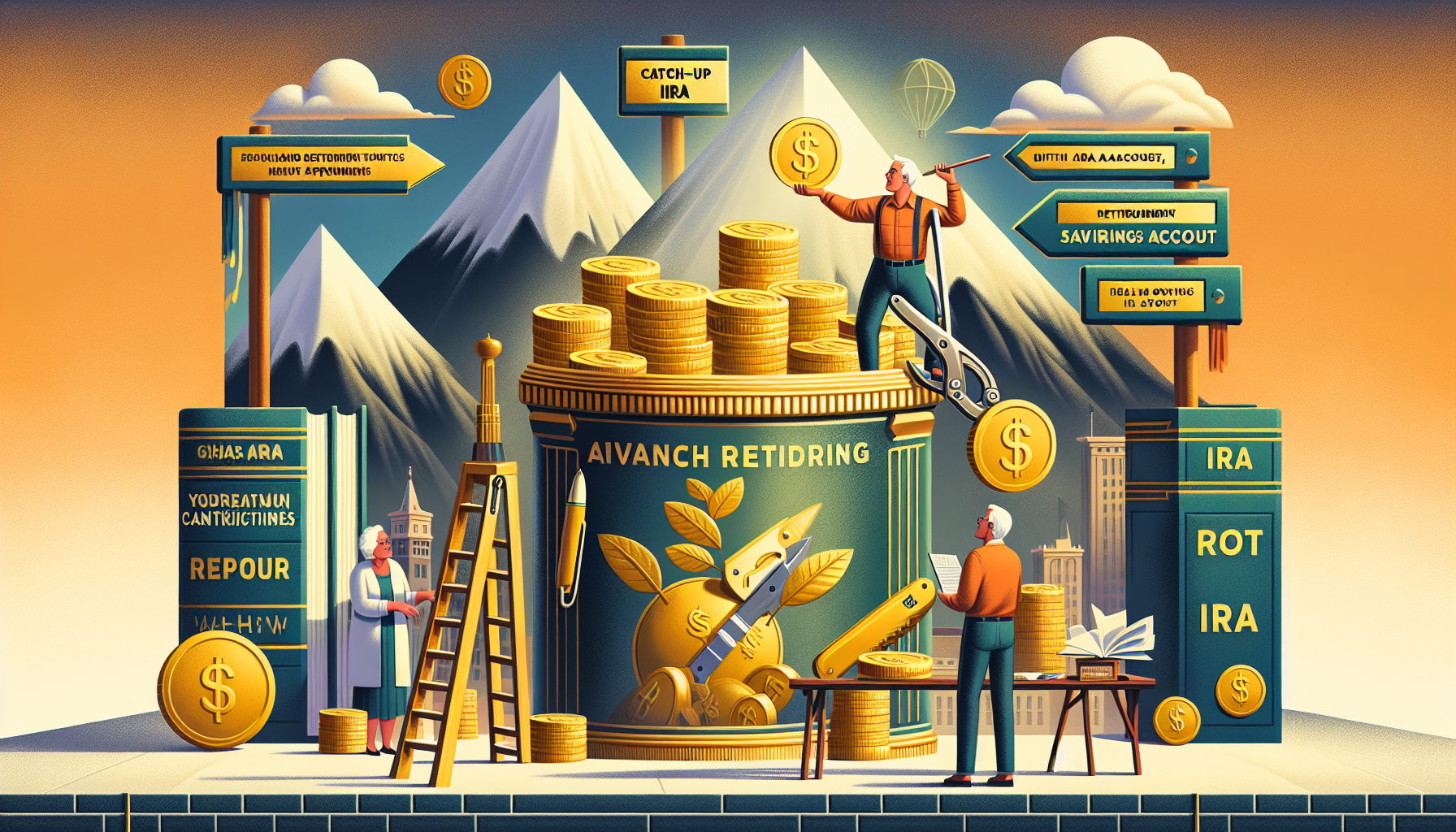Creating a budget that works for you encompasses understanding your financial landscape, devising a structured framework, and implementing strategies that accommodate both your current circumstances and future goals. This comprehensive guide navigates through the essentials of personal budgeting, from evaluating income streams and managing expenses to setting achievable financial goals. Whether you’re seeking to build an emergency fund, save for a big purchase, or simply gain control over your spending, this course lays out the practical steps and considerations needed to tailor a budget that fits your unique financial scenario. Indispensable for anyone looking to establish financial stability, our lessons are designed to empower you with the tools and knowledge needed to make informed decisions about your money.
Lesson 1

Understanding Your Financial Landscape: A Guide to Crafting Your Budget
Creating a budget that truly reflects your financial circumstances starts with a deep dive into understanding your financial landscape. This step is foundational in crafting a budget that works for you, ensuring that every dollar you earn or spend aligns with your financial goals and lifestyle needs.
Evaluating Your Income Streams
The first step in grasping your financial landscape is evaluating your income streams. Knowing exactly how much money you have coming in each month lays the groundwork for a realistic budget. Consider all sources, including main income, side gigs, and any passive income streams.
Tracking Your Spending Patterns
Next, turn your attention to your spending. Tracking where your money goes each month unveils patterns and areas where you can adjust. Whether it’s dining out, online subscriptions, or impulse buys, understanding your spending habits is crucial.
Setting Financial Goals
What do you hope to achieve with your budget? Setting both short-term and long-term financial goals gives your budget purpose and direction. Maybe you’re saving for a vacation, aiming to pay off debt, or building an emergency fund. Your goals should inspire your budgeting strategy.
Understanding the Importance of an Emergency Fund
Life is full of surprises, not all of them pleasant. An emergency fund acts as a financial safety net for those unforeseen expenses. Start by setting aside a small amount each month, gradually building a fund that can cover at least three to six months of living expenses.
In creating a budget that works for you, it’s essential to thoroughly understand your financial landscape. By evaluating your income, tracking your spending, setting clear goals, and establishing an emergency fund, you’re laying a solid foundation for financial success. Remember, a budget isn’t a constraint but a tool to achieve financial freedom and peace of mind.
Lesson 2

Building Your Budget Framework: The Path to Financial Stability
Building a budget that works for you is akin to constructing a sturdy house; it requires a solid foundation, careful planning, and regular maintenance. In a world where financial stability may seem like a challenging feat, developing a structured budget framework stands out as a beacon of hope. Let’s explore how you can construct a budget that not only matches but enhances your financial wellbeing.
Exploring Different Types of Budgets
Starting with the basics, there are several budget types to consider. Each offers unique advantages tailored to different spending habits and financial goals. Whether it’s the 50/30/20 rule, which allocates percentages of income to needs, wants, and savings, or the zero-based budget, where every dollar is assigned a specific job, finding the right fit is crucial. Experimenting with these methods can unveil the perfect approach to budgeting for your lifestyle.
Strategically Allocating Your Expenses
Upon deciding on a budget type, the next step involves allocating your expenses. Priority should always be given to necessities such as rent, bills, and groceries, followed by savings and, finally, discretionary spending. A proactive approach to expense allocation guarantees that essential needs are met without overlooking the importance of saving for the future.
Utilizing Tools and Resources
To streamline the budgeting process, a myriad of tools and resources is at your disposal. From sophisticated apps tracking your spending in real-time to simple spreadsheets offering a bird’s eye view of your finances, the key is to choose tools that resonate with your budgeting style. Let these tools serve as your allies in managing your finances effectively.
Adapting to Life’s Changes
Life is unpredictable, and so are our finances. A robust budget is one that evolves alongside your financial situation. Whether it’s a change in income, an unexpected expense, or a shift in financial goals, revisiting and adjusting your budget ensures it remains relevant and supportive of your current needs.
In essence, building your budget is an ongoing journey of discovery, adjustment, and resilience. By understanding different budgeting methods, prioritizing your expenses, leveraging the right tools, and staying adaptable to change, you pave the way for enduring financial stability and peace of mind. Remember, the ultimate goal is to create a budget that not only works but thrives within the contours of your financial landscape.
Lesson 3

Implementing and Managing Your Budget: A Strategy for Long-Term Success
Implementing and managing your budget effectively is akin to steering a ship through changing seas. It requires adaptability, foresight, and regular adjustments to ensure you stay on course toward your financial goals. With the right approach, you can turn the challenge of adhering to a budget into a rewarding journey toward financial stability and success.
Sticking to Your Budget
Adherence is key when it comes to maintaining your budget. Begin by setting realistic spending limits and keep yourself accountable. Small, daily choices can have a big impact, so consider using cash for daily expenses to physically see the money you’re spending. It’s also beneficial to celebrate small victories; treating yourself within reason can foster a positive attitude towards budgeting.
Monitoring and Adjusting Your Spending
Life is not static, and neither should your budget be. Regularly check your spending and compare it against your budget plan. Use a monthly review to reflect on what worked and what didn’t, and adjust your budget accordingly. This could mean reallocating funds between categories or cutting back on non-essential spending if you notice you’re consistently over your limits.
Overcoming Common Budgeting Challenges
Unexpected expenses or fluctuations in income can derail even the most carefully planned budgets. Building an emergency fund is crucial for weathering such storms. If an unexpected expense does arise, review and adjust your budget without guilt. Remember, the flexibility to adapt is a strength, not a setback.
Celebrating Budgeting Success
Acknowledging and celebrating your progress is vital for long-term budgeting success. Whether it’s paying off a debt, saving for a significant purchase, or simply sticking to your budget for a consecutive month, take time to recognize these milestones. Celebration reinforces positive behavior and motivates you to maintain your financial discipline.
Implementing and managing your budget is a dynamic process that evolves with your life’s changes. By sticking to your budget, monitoring and adjusting your spending, overcoming challenges, and celebrating your successes, you’re setting yourself up for a future of financial stability and success. Remember, the journey to financial wellness is a marathon, not a sprint, and patience, as well as perseverance, are your best companions.
Creating a budget that truly works for you is a journey through understanding your financial landscape, developing a strategic budget framework, and mastering the art of managing your finances effectively. This course has equipped you with the knowledge and tools necessary to take control of your financial future, adapt to life’s changes, and achieve your financial goals. We’ve delved into various budgeting techniques, explored practical tips for sticking to your budget, and highlighted the importance of flexibility and continuous improvement in your financial planning. As you move forward, remember that the key to successful budgeting is a commitment to revisiting and refining your approach as your life and goals evolve. To validate your understanding and mastery of the concepts covered, we invite you to take the 10-question quiz below. This quiz is designed to test your knowledge and ensure you’re ready to create and manage a budget that aligns with your financial aspirations.
Test Your Knowledge With this short Quiz
Click here to copy your score to share on facebook!







